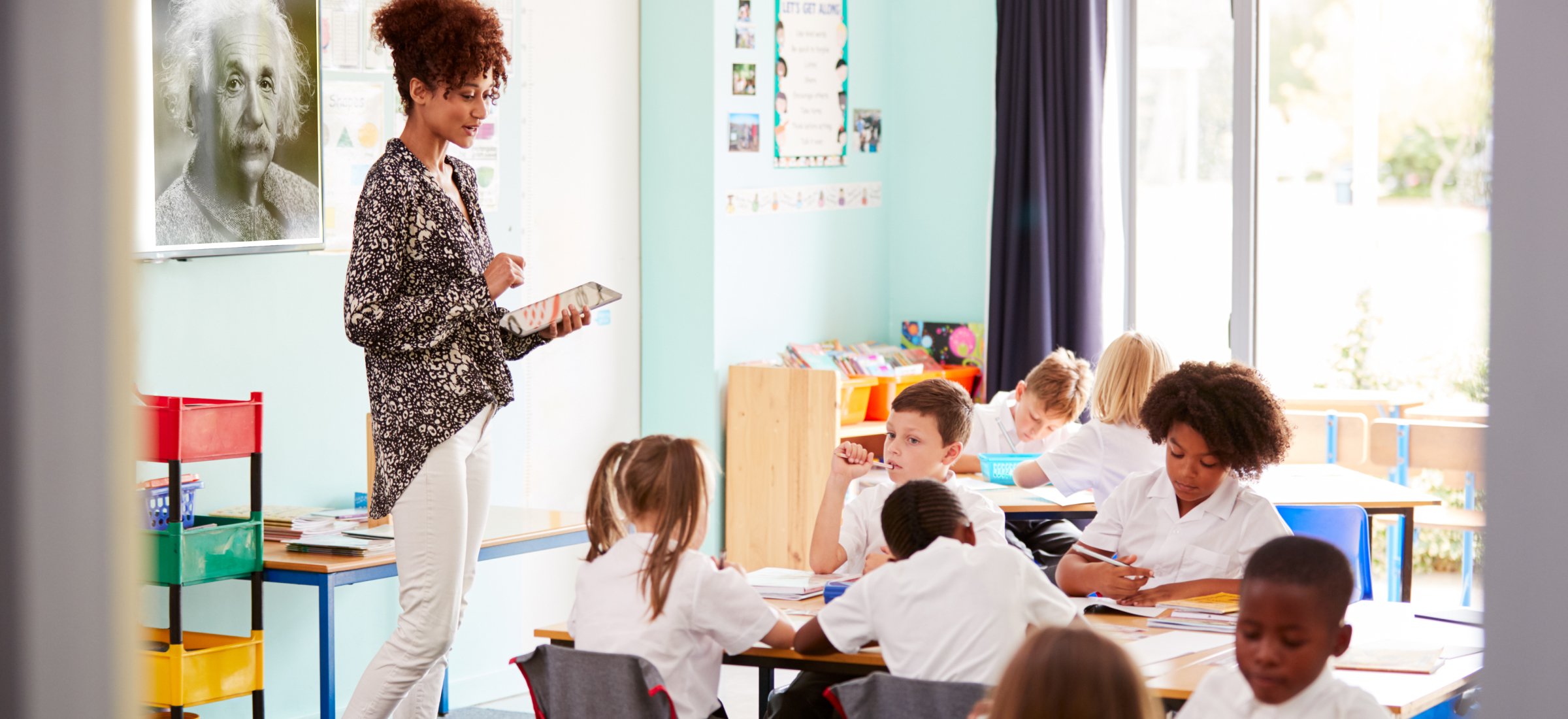Joana Kompa is a digital education consultant, social psychologist, educational reformer and design educator with over 30 years of international experience.
Q&A with edtech expert Joana Kompa

Joana’s expertise lies in the interface between technology and pedagogy: how young people learn and how tech can support that learning. She is passionate about empowering learners of all ages by creating innovative digital learning environments.
We sat down with Joana to discuss the proliferation of digital technology in the classroom, the concept of blended learning, and how schools can best prepare to return after lockdown.
To what extent can digital technology improve the learning process?
The reason why I’m an advocate of digital technology when it comes to education is that I see properties that don’t exist in analog teaching.
Some of the unique properties of digital technology for learning include:
- It enables us to put teaching and learning materials online, so we are relatively independent of space and time. This creates greater flexibility – learners can work on materials at their own pace, in their own time.
- Media needs to be updated more regularly than it used to. Digital platforms and textbooks can be updated quickly and easily, which is not the case with a physical textbook.
- Digital technology has enabled multi modality in education – we have many ways to represent reality. For example with mathematics apps, we can simulate mathematical problems in real-time. This helps us to look at and visualize concepts better. We all have different learning styles – some of us learn well by reading text, others are more visual learners, some are a mix of both. There is not one system that fits all. Multimedia learning has great advantages when it comes to bringing all learners on board.
- Some students become more self-reliant and self-directed, as they have access to more learning resources, such as videos and infographics online. As a result of this, the traditional role of student and teacher has changed. Teachers no longer exist to disseminate knowledge – they are actively involved in all aspects of the learning process. Teachers guide and assist students’ learning in an adaptive manner.
Do you see a risk for schools that do not embrace digital technology in the classroom?
Unfortunately, this is already happening in many schools. Teachers who keep hanging on to traditional instructional pedagogy and analog media will notice that the learning culture of their students continues to drift away from what is happening in the classroom. Instructors who hang onto the role of the sole provider of knowledge will feel increasingly disempowered since they are no longer exclusive gatekeepers of educational content.
The Internet has become the biggest open learning ecosystem of our planet. Young people who grow up with social networks are used to continuous feedback from their peers. By contrast, traditional school settings are among the few remaining places where little or no feedback on learning processes is offered. Subsequently, schools that resist reforming their technological infrastructure and pedagogical strategies are bound to frustrate teachers, students and parents alike. Today’s parents expect schools to provide their children with the skills needed in the 21st-century.
Are there any countries or regions that you’ve seen excel at blended learning?
The US, propelled by the need to deliver education across large geographical distances, has already begun to adopt blended learning. It’s no surprise that the development of powerful learning management systems (LMS) started here.
Pedagogically, in my opinion, looking at Finland or Denmark, it is Scandinavian countries coming up with the most advanced pedagogical solutions of creating a more holistic and community-based approach to blended learning.
Blended learning should not predominantly serve the acquisition of knowledge as an extension of analog teaching, but should empower learners to develop their personality and strengthen their community spirit.
With the formulation of the comprehensive framework ‘Digital Competence for Educators (DigCompEdu) of the EU-Commission’, in combination with pragmatic workshop models such as the ABC workshop developed by Clive Young and Nataša Perović, I see European countries well-prepared for the years ahead. We are still at the very early stages of this cultural process.
Do you predict more of a move towards blended learning in the next few years, following the impact of Covid-19? Are there any other interesting trends that you’ve seen come out of Covid-19 in education?
Looking at our own behavior of the past months, prediction is not difficult. By now, we have all learned how to initiate and conduct videoconferences, how to share content online or how to use digital tools for collaboration. Concepts we hadn’t implemented about a year ago are becoming daily practice and habit today.
My prediction is that not all, but many of these new habits are bound to stay. One of the major reasons is the increase in cultural speed and the need for more rapid innovation cycles. From a design perspective, I predict that technology will merge analog and digital information processing seamlessly to a point where the categorical differentiation between analog and digital media doesn’t make much sense anymore. The future will be ‘fluid media’.
How do you think schools and educators can best prepare for the return to the classroom (hopefully) later this year?
My biggest concern is that some educators will try to abandon digital media as soon as face-to- face instruction becomes possible again. I hope that schools around the world return with a changed mindset, one that questions standardized tests and the emphasis on content knowledge compromising the learning process. The call for more creativity at schools by the great Sir Ken Robinson still echoes in my mind.
Interested to see how Airtame can help bring your classroom into the future? Check out our education page.
To find out more about Joana’s work, visit her website.